Common Murfreesboro Water Heater Myths: Unlock the Truth
If you're a homeowner in Murfreesboro, you may have encountered some misconceptions about water heater replacement. To clear the air and provide accurate information, we've put together a comprehensive guide that debunks common myths surrounding water heaters. By delving into this guide, you'll find enlightening truths that may surprise you.

Myth #1: They last forever
Water heaters, despite what some may believe, are not immortal devices. They may serve you well for a number of years, but their lifespan does have limits. The number of years your water heater can function optimally depends on variables like usage, maintenance, and quality. Generally, you can expect a water heater to last between 8 to 12 years. However, it's essential to understand that keeping an older unit beyond its lifespan can lead to costly repairs and even water damage in your home. To avoid such undesirable circumstances, it is highly recommended that you begin exploring replacement options once your water heater approaches its expected lifespan. By doing so, you can prevent potential damage.

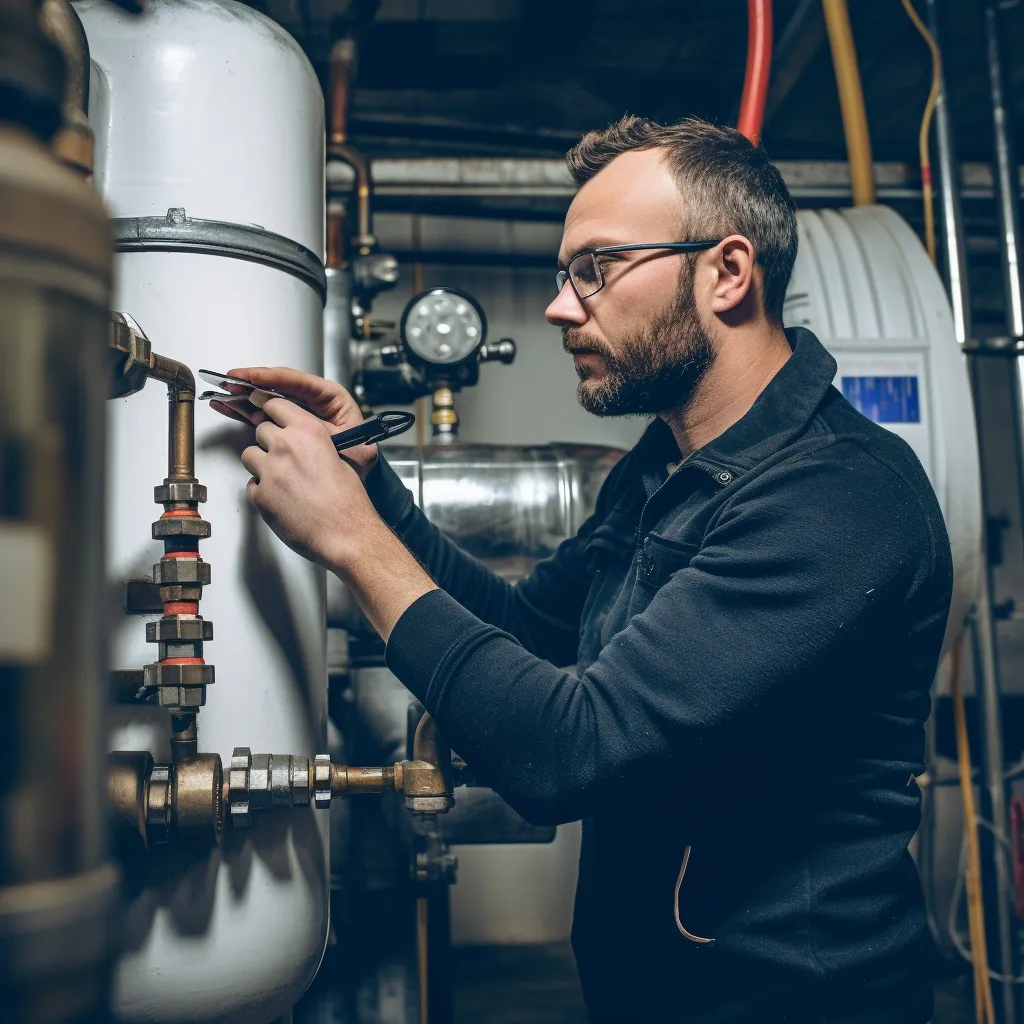
Myth #2: All water heaters are the same
There is a common misconception that all units are the same. However, this couldn't be further from the truth. In reality, there are several different types of water heaters available on the market, each with its own unique features and benefits. If you're considering a water heater upgrade, it's important to understand the different options available to you. The most common types of water heaters include tankless water heaters, traditional storage tank water heaters, and heat pump water heaters. Tankless water heaters, as the name suggests, do not store hot water in a tank. Instead, they heat the water as it flows through the unit. This not only saves space but also provides a continuous supply of hot water, making it an ideal choice for households with high hot water demands. On the other hand, traditional storage tank water heaters store and constantly heat a predetermined amount of water in a tank. While they are more affordable upfront, they can be less energy-efficient and may run out of hot water if the demand exceeds the tank's capacity. Heat pump water heaters use electricity to move heat from the surrounding air to heat the water. They are highly energy-efficient and can significantly reduce your energy bills. However, they may not be suitable for colder climates or spaces with limited airflow.
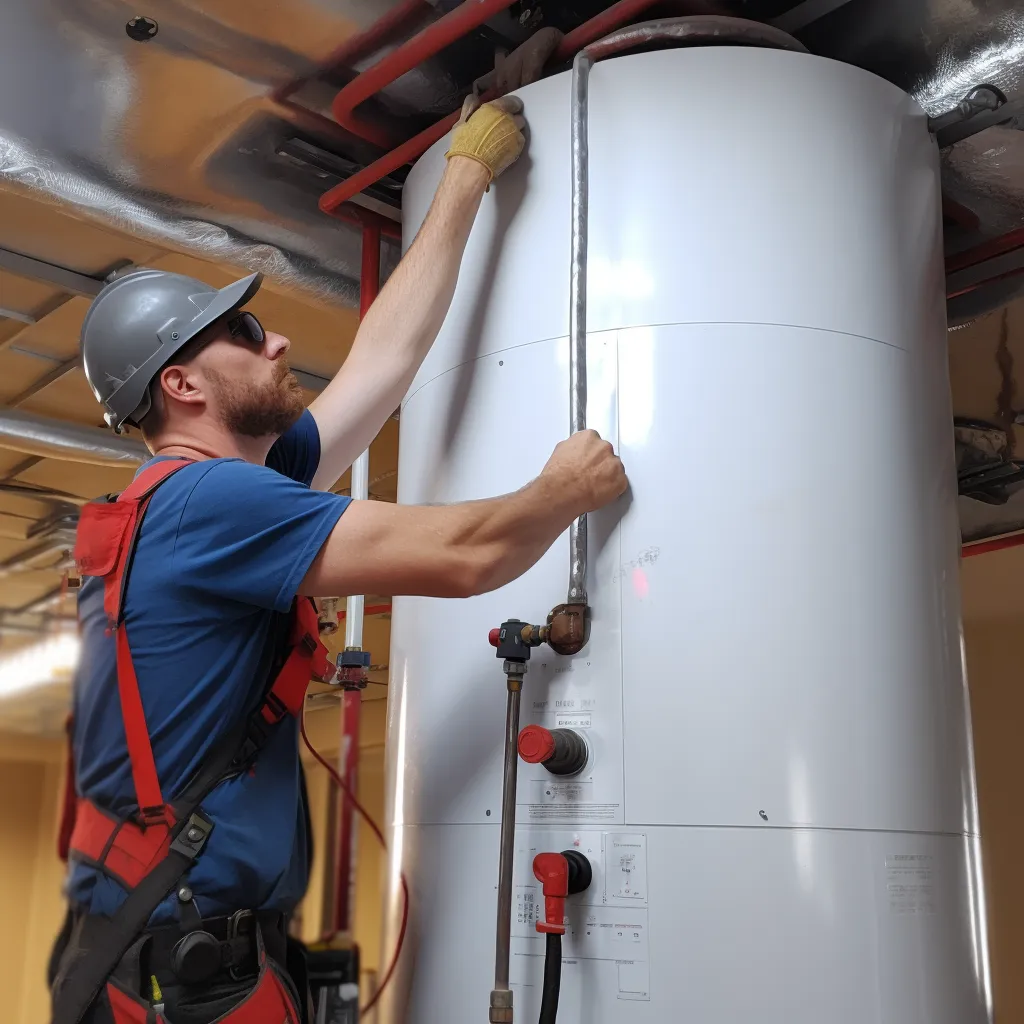
Myth #3: You get more hot water with a bigger tank
One common myth surrounding water heater replacement is the belief that a larger tank automatically means more hot water. Contrary to popular belief, the size of the tank does not determine the amount of hot water that a water heater can provide. It's the heating capacity of the unit that determines how much hot water it can produce. A larger tank can store more hot water, but if the heating capacity is the same as a smaller tank, the amount of hot water produced will be the same. If you're thinking about buying a new water heater, it's crucial to choose a water heater with the appropriate heating capacity for your household's hot water needs. Factors such as the number of people in the household, daily water usage, and peak demand times should be taken into account when selecting a new water heater.
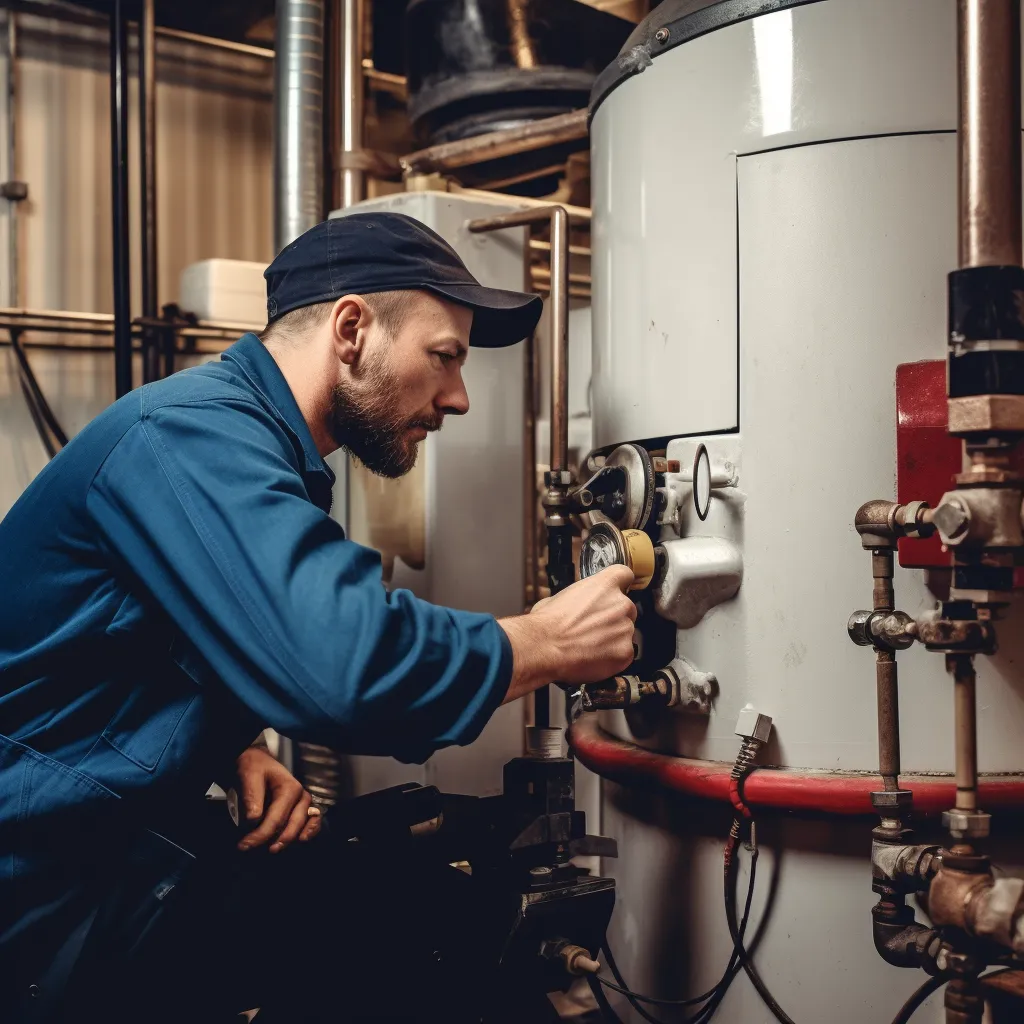
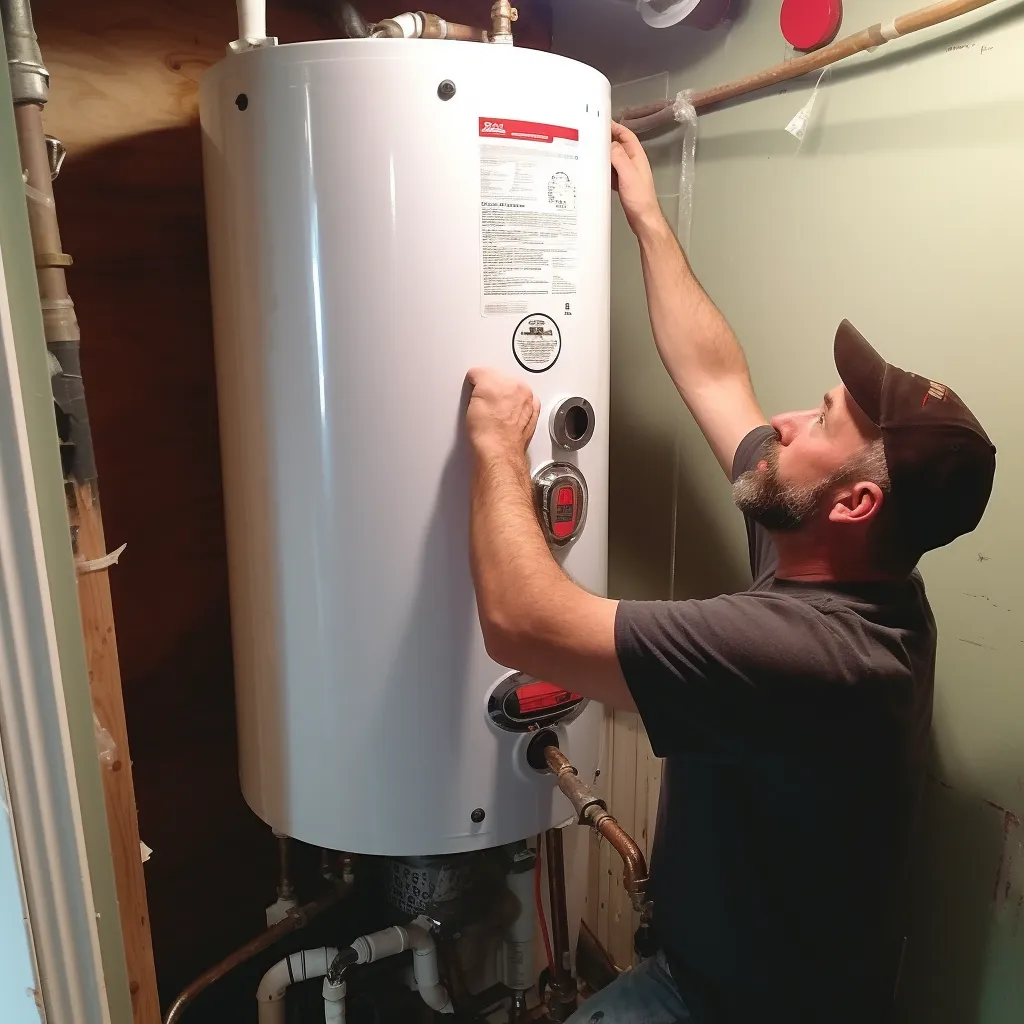
Myth #4: You can DIY with water heater repair or replacement
When your hot water heater is malfunctioning, it's essential to take immediate action. However, trying to resolve the problem on your own can worsen the situation or put you at risk of injury. It is highly advised to enlist the assistance of skilled water heater repair technicians. These professionals have the necessary expertise and know-how to tackle the issue with precision and effectiveness. Trusting experts for your water heater replacement in Murfreesboro ensures a prompt and reliable solution for your hot water troubles.

Myth #5: Water heaters don't need to be flushed
Many people believe that their water heater does not need to be flushed regularly, but this is a myth. While it is true that water heaters do not require frequent flushing, it is still important to do so periodically to maintain the efficiency and longevity of the unit. If you neglect to flush your water heater, sediment can build up at the bottom of the tank, causing it to become less efficient and potentially leading to premature failure. By flushing your water heater, you can remove this sediment and ensure that your unit continues to operate at its best.
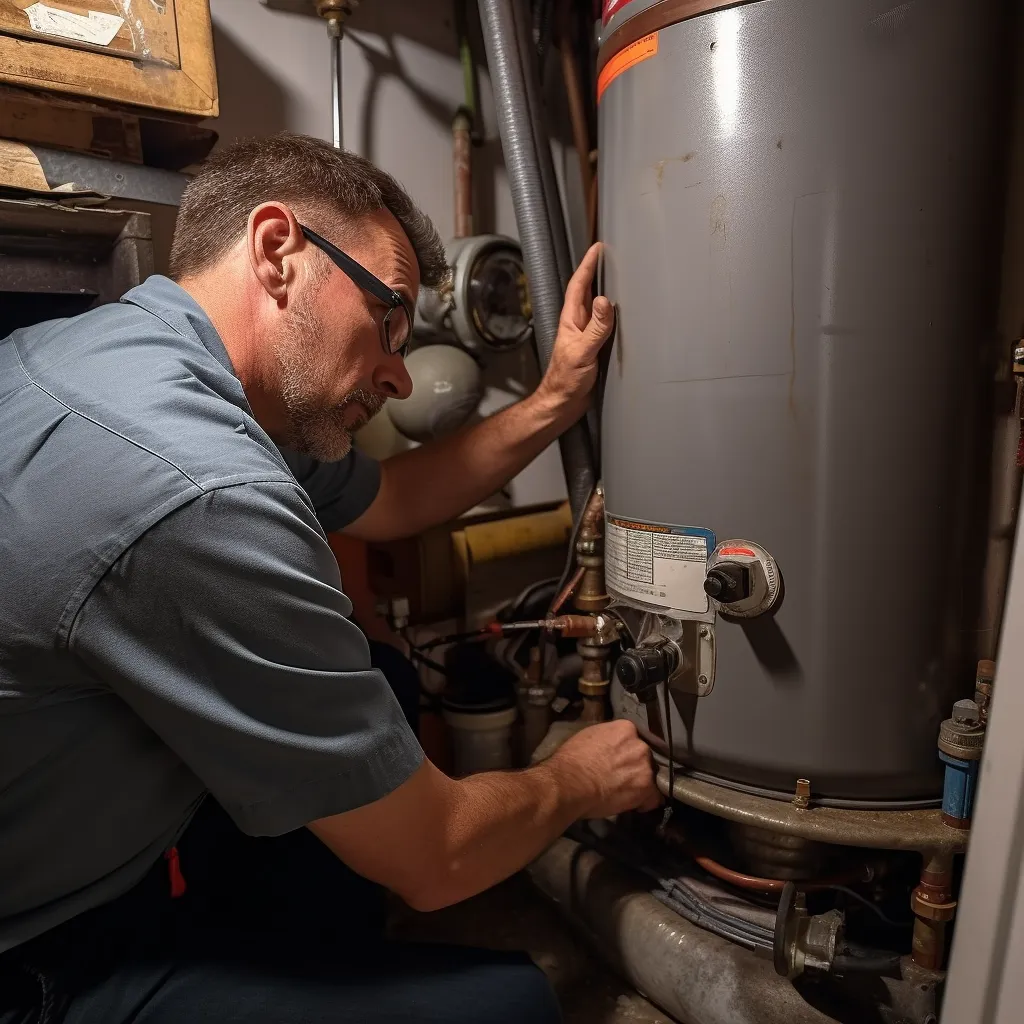

Myth #6: You can save money by keeping an outdated water heater
One common misconception is that keeping an outdated water heater in your home can save you money. This is a myth. While it may seem like you are saving money by not investing in a new water heater, it can actually end up costing you more in the long run. Outdated water heaters are typically less energy-efficient than newer models. This means they require more energy to heat the same amount of water, leading to higher utility bills. Additionally, older water heaters are more prone to leaks and malfunctions, which can result in costly repairs and water damage. By replacing your outdated water heater with a newer, more energy-efficient model, you can save money on your monthly energy bills. Newer water heaters are designed to operate more efficiently, heating water quickly and using less energy in the process.

Myth #7: Bigger water heater tanks are more energy efficient
Water heaters are essential appliances in any household, providing hot water for various tasks such as bathing, cooking, and cleaning. With the advancements in technology, homeowners often seek energy-efficient options when it comes to replacing your water heater. However, there is a common misconception that a bigger water tank equates to greater energy efficiency. In reality, this is a myth that needs to be debunked. The size of a water tank does not directly correlate with its energy efficiency. The efficiency of a water heater is determined by various factors, such as the type of water heater, insulation, and fuel source. For instance, tankless water heaters, also known as demand-type or instantaneous water heaters, have gained popularity due to their energy efficiency. These units heat water directly without the need for a storage tank, eliminating standby energy loss. On the other hand, traditional storage tank water heaters have a large reservoir that constantly keeps a supply of hot water available. While a bigger tank may provide a higher capacity for hot water storage, it does not necessarily result in improved energy efficiency. In fact, larger tanks may require more energy to maintain the temperature of the water within the tank.

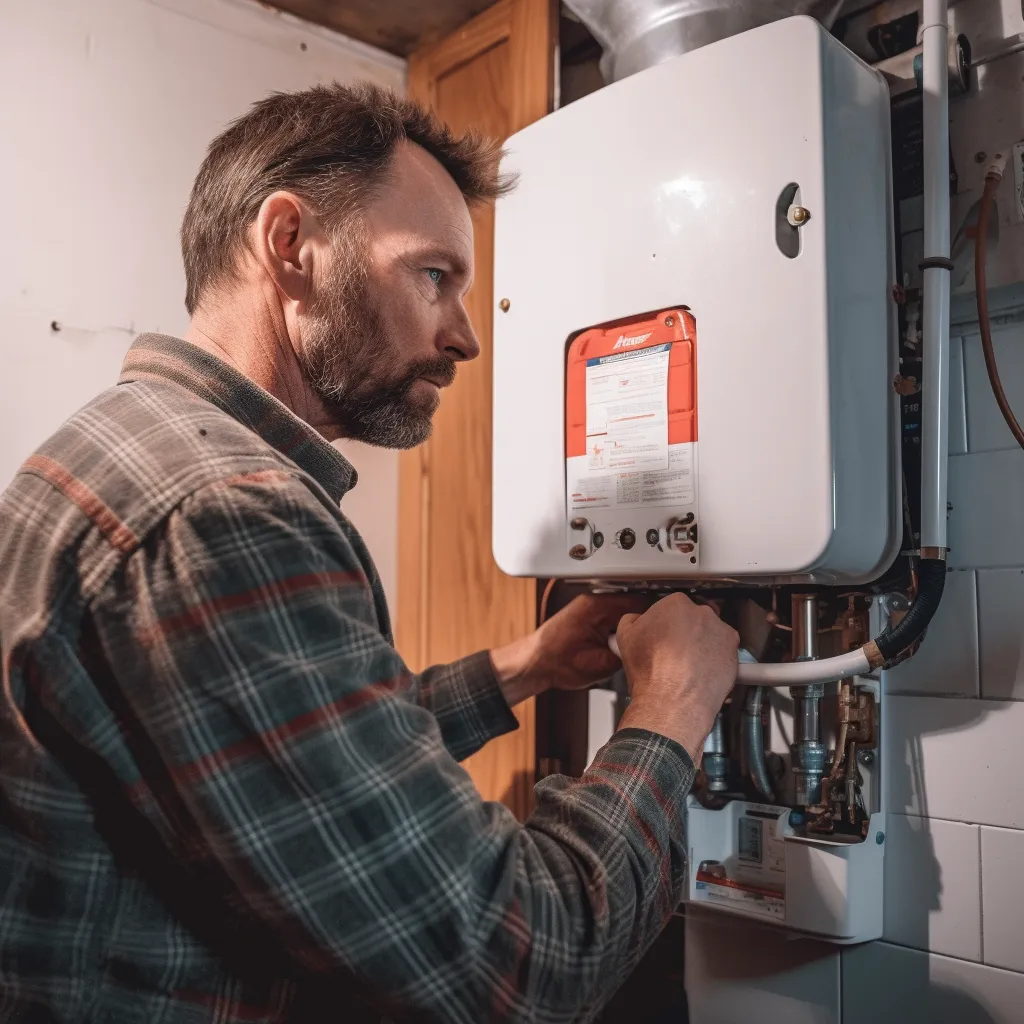
Myth # 8: Crank up the water temperature
One commonly held belief is that turning up the water temperature on your water heater is a wise decision. However, this is actually a myth. It is important to note that setting the water temperature too high can pose several risks and is not recommended. First and foremost, excessively high water temperatures can lead to scalding injuries. This is particularly true for children, the elderly, and individuals with sensitive skin. Scalding can cause serious burns, which may require medical attention and result in long-term damage. In addition to the risk of scalding, setting the water temperature too high can also increase your energy costs. Higher temperature settings result in the water heater having to work harder to maintain the desired temperature. This increased energy consumption can lead to higher monthly bills. Moreover, excessively high temperatures can accelerate the deterioration of your water heater tank. Constant exposure to high temperatures can cause the tank to deteriorate faster, leading to leaks and other potential issues. This can result in costly water heater repairs or even the need for a complete replacement. To ensure safety and energy efficiency, it is recommended to set your water heater temperature to around 120 degrees Fahrenheit (48 degrees Celsius). This is generally considered a safe and comfortable temperature for most households.

Myth #9: There's no problem setting your water heater to the highest temperature
One prevalent myth is the belief that setting your water heater to the highest temperature is the best practice. However, this is not entirely accurate. While it is true that setting your water heater to a higher temperature can provide hotter water, there are a few downsides to consider. Firstly, it can pose a safety risk, especially if you have young children or elderly family members in your household. Higher temperatures can lead to scalding, which can cause severe burns and injuries. Additionally, a higher temperature setting can also lead to increased energy consumption and utility bills. Your water heater will continually work to maintain the higher temperature, even when hot water is not being used. This constant operation can put unnecessary strain on your unit and result in higher energy costs. Instead of setting your water heater to the highest temperature, it is recommended to find a balance that meets your needs without compromising safety and efficiency. The U.S. Department of Energy suggests keeping your water heater temperature at around 120 degrees Fahrenheit. This temperature is considered safe for most households, providing comfortable hot water while reducing the risk of scalding accidents and helping to conserve energy.

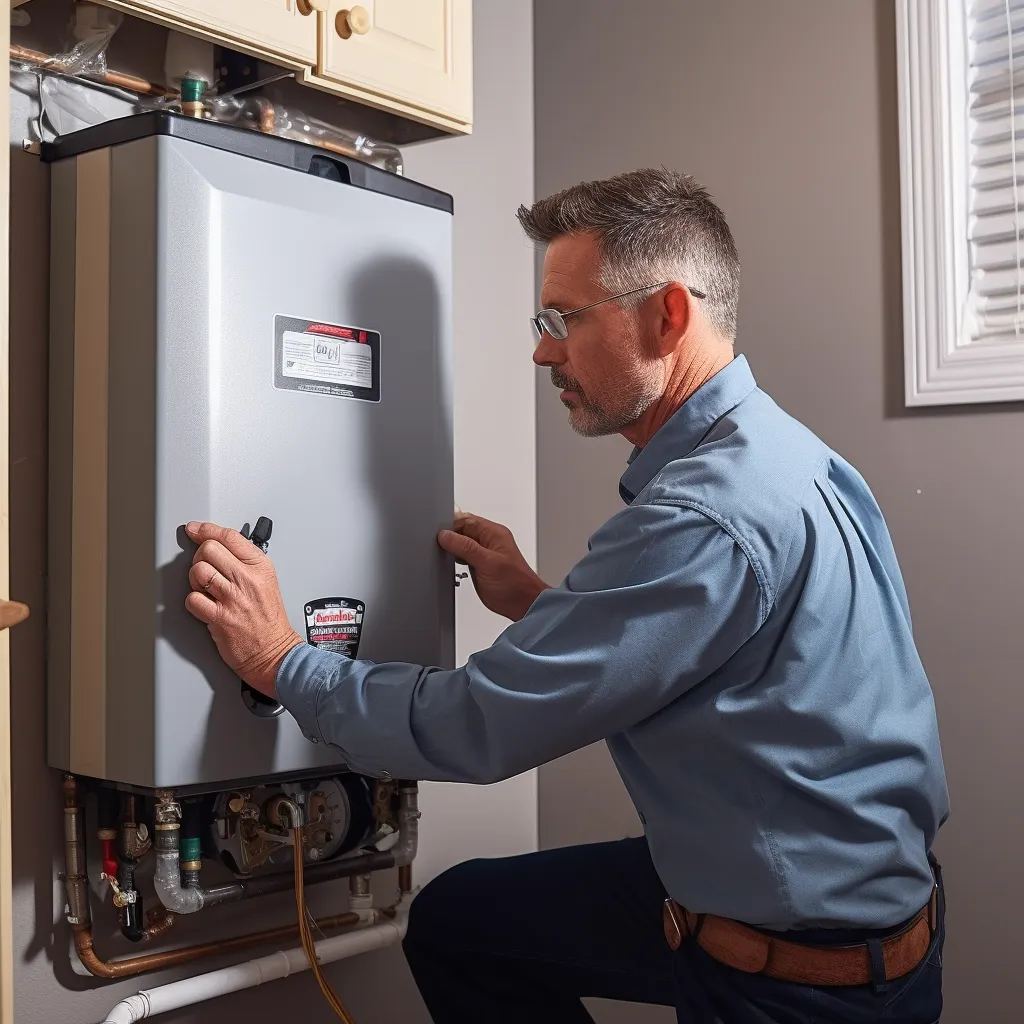
Myth #10: Water heaters waste energy
While it is true that water heaters consume energy, it is not entirely accurate to say that they waste it. Water heaters are essential appliances that provide us with hot water for various purposes, including bathing, cooking, and cleaning. However, it's important to note that older or inefficient water heaters may consume more energy than newer, more energy-efficient models. With advances in technology, manufacturers have developed water heaters that are designed to be more energy-efficient, thus reducing their impact on the environment and lowering energy bills. These modern water heaters often come with features such as improved insulation, advanced heating elements, and better temperature control mechanisms. By upgrading to a newer, more energy-efficient model, homeowners can potentially save on energy costs and reduce their carbon footprint. If you're concerned about the energy consumption of your water heater, it's worth considering a replacement. There are plenty of reputable plumbing companies that specialize in water heater replacement. By opting for a professional water heater replacement service, you can ensure that your old, inefficient unit is replaced with a more energy-efficient model.

Myth #11: Regular water heater maintenance is not necessary
Myth #11 suggests that regular maintenance is unnecessary for a water heater. This is not true, as routine maintenance is crucial for the optimal performance and longevity of these devices. Water heaters work tirelessly to heat and store water, which can lead to the accumulation of sediment and mineral deposits in the tank over time. Without regular maintenance, these deposits can cause significant issues, such as reduced heating efficiency, increased energy consumption, and even premature failure of the unit. Regularly maintaining your water heater involves a few simple steps. First, you should flush the tank at least once a year to remove sediment buildup. This can be done by attaching a hose to the drain valve and allowing the water to drain into a suitable container until it runs clear. Flushing the tank helps maintain its efficiency and prolongs its lifespan. Additionally, inspecting the pressure relief valve is vital for safety purposes. This valve is designed to release excess pressure and prevent explosions. Testing it periodically helps ensure that it is functioning correctly. Furthermore, conducting a visual inspection of the water heater, including checking for leaks, damaged components, or signs of corrosion, is essential. Any issues should be addressed promptly to prevent further damage or water-related mishaps. By regularly maintaining your water heater, you can avoid costly repairs and potentially extend its lifespan. It is recommended to consult a professional technician for a comprehensive inspection and maintenance service, especially if you are unsure how to proceed or if your water heater is due for a replacement.
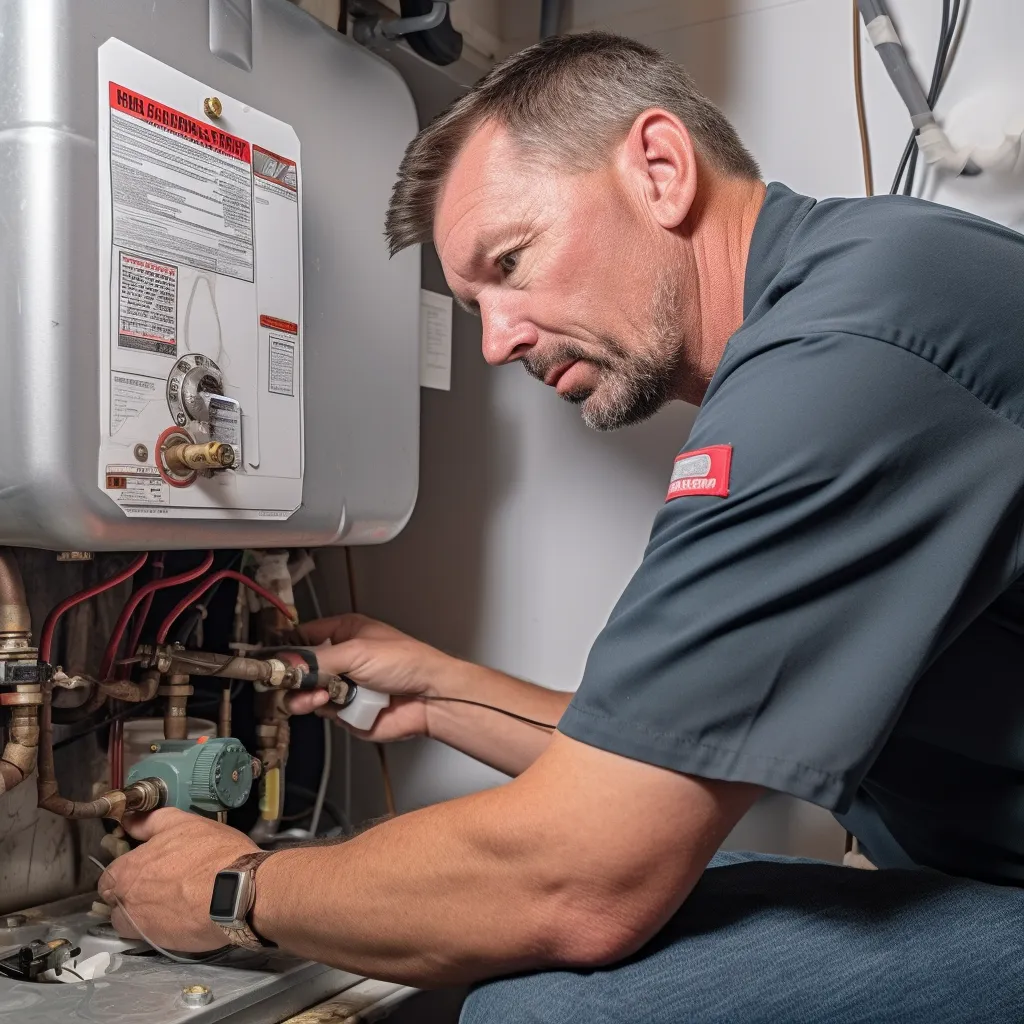

Myth #12: Using any type of water heater is fine
Fact: It is a common myth that any type of water heater can be used in a home. However, this is not entirely accurate. The choice of water heater depends on various factors such as the size of the home, the number of occupants, and the hot water needs of the household. It is important to consider the local climate and the availability of energy sources. To ensure efficient and cost-effective water heating, it is advisable to consult with a professional plumber specializing in water heater replacement in Murfreesboro. They can assess your specific needs and recommend the most suitable water heater for your home. In conclusion, it is important to dispel the myth that any type of water heater can be used in a home. Seeking professional advice will help you choose the right water heater that suits your household's specific requirements, ensuring optimal performance and energy efficiency.

Myth #13: Hard water hurts your water heater
There is a common misconception that hard water can cause damage to your water heater. However, this is not entirely accurate. While hard water can have some negative effects on household appliances, it is not a direct cause of water heater damage. Hard water contains a high concentration of minerals like calcium and magnesium. When this water is heated in a water heater, these minerals can accumulate and form sediment at the bottom of the tank. Over time, this sediment can reduce the efficiency of the water heater and potentially lead to corrosion or other issues. That being said, regular maintenance and flushing of your water heater can help prevent these problems. By periodically removing the sediment, you can ensure that your water heater continues to operate efficiently. Additionally, installing a water softener or using a water treatment system can help reduce the effects of hard water on your appliances, including your water heater. If you are concerned about the impact of hard water on your water heater, it is a good idea to consult with a professional plumber or water treatment specialist. They can assess your specific situation and recommend the best course of action to protect your appliance and maintain its longevity. So, while hard water can have some consequences for your water heater, it is not a direct cause of damage and can be effectively managed with proper maintenance and treatment.


Myth #14: Tankless water heaters are more costly
There is a common misconception that tankless water heaters are more expensive than traditional tank water heaters. However, this is a myth that needs to be debunked. In fact, tankless water heaters can save you money in the long run. While the initial cost of a tankless water heater may be higher than a traditional tank water heater, the benefits far outweigh the costs. Tankless water heaters are designed to provide hot water on demand, which means they only heat the water when you need it. This eliminates the need for a large storage tank that constantly heats and reheats water, resulting in energy savings. In addition to energy savings, tankless water heaters have a longer lifespan compared to traditional tank water heaters. On average, a tankless water heater can last up to 20 years, while a tank water heater typically lasts about 10-15 years. This means that you won't have to worry about replacing your water heater as frequently, saving you money in the long run. Another advantage of tankless water heaters is their compact size. Unlike traditional tank water heaters, which can take up a significant amount of space, tankless water heaters are much smaller and can be installed in tight spaces. This is especially beneficial for homeowners with limited space or those looking to maximize their storage space.
Contact Us
GET IN FULL TOUCH
PHONE: 615-671-4918
EMAIL:
steven@waterheatermurfreesboro.com
Rutherford Plumbing Heating & Cooling
Murfreesboro, TN 37128
